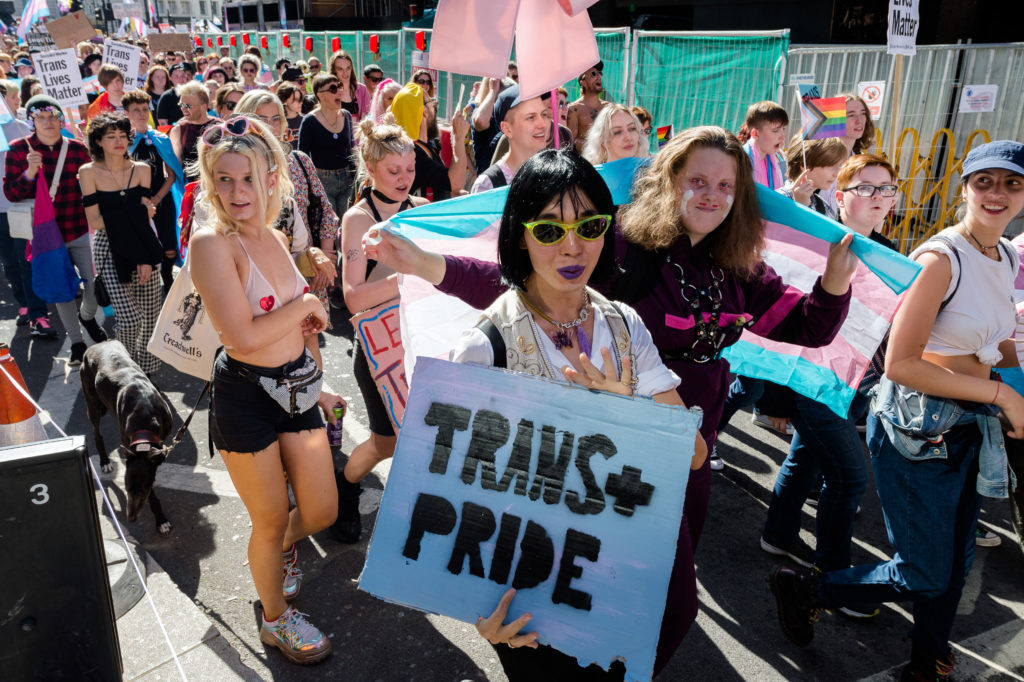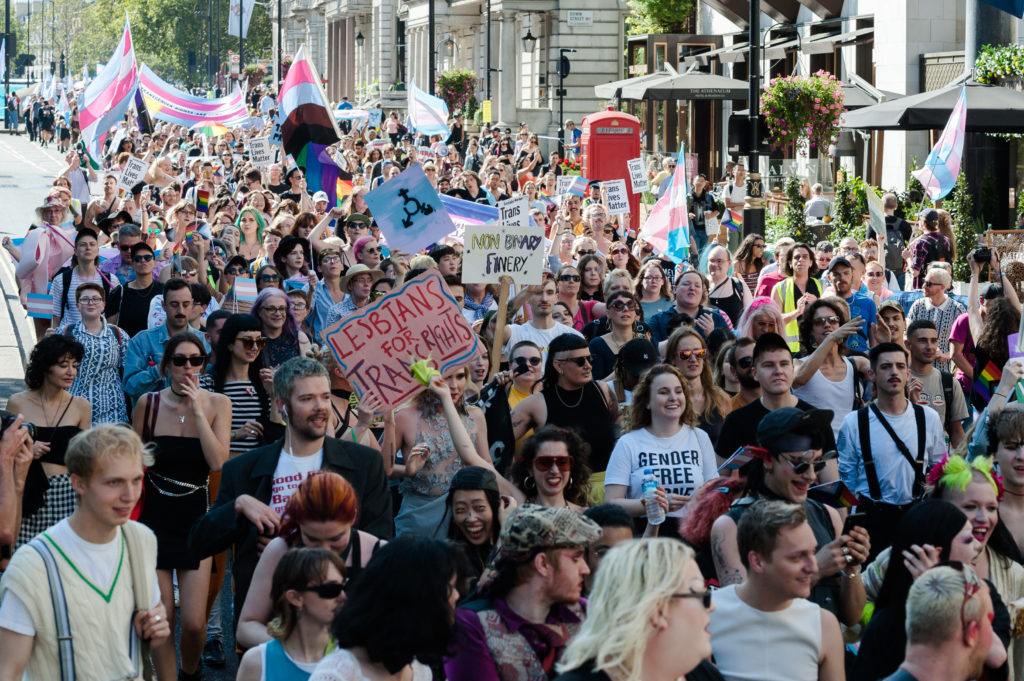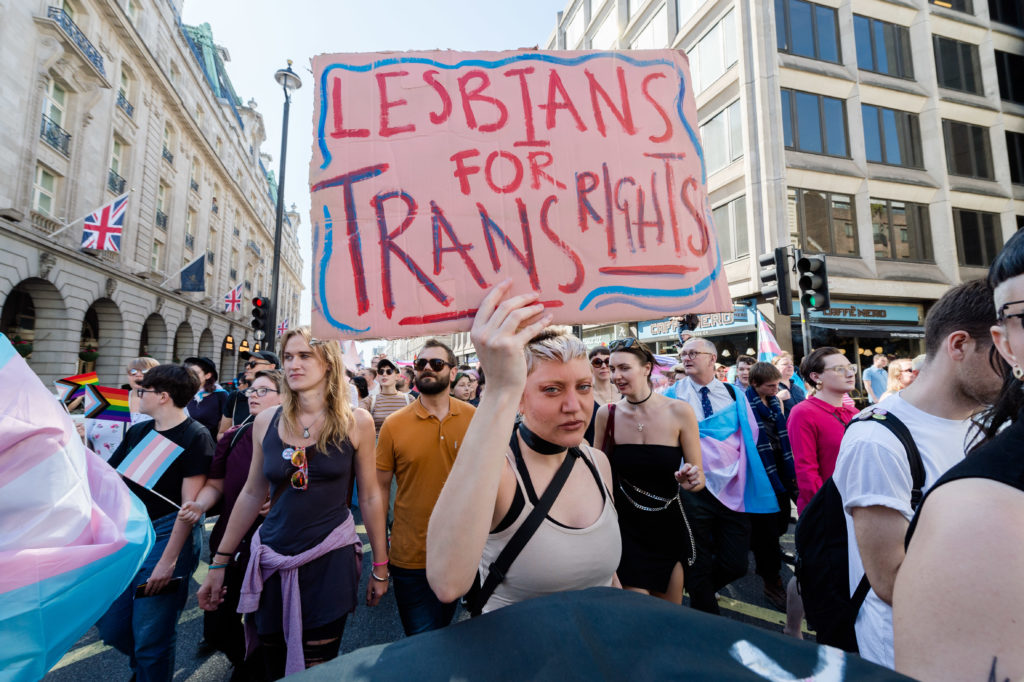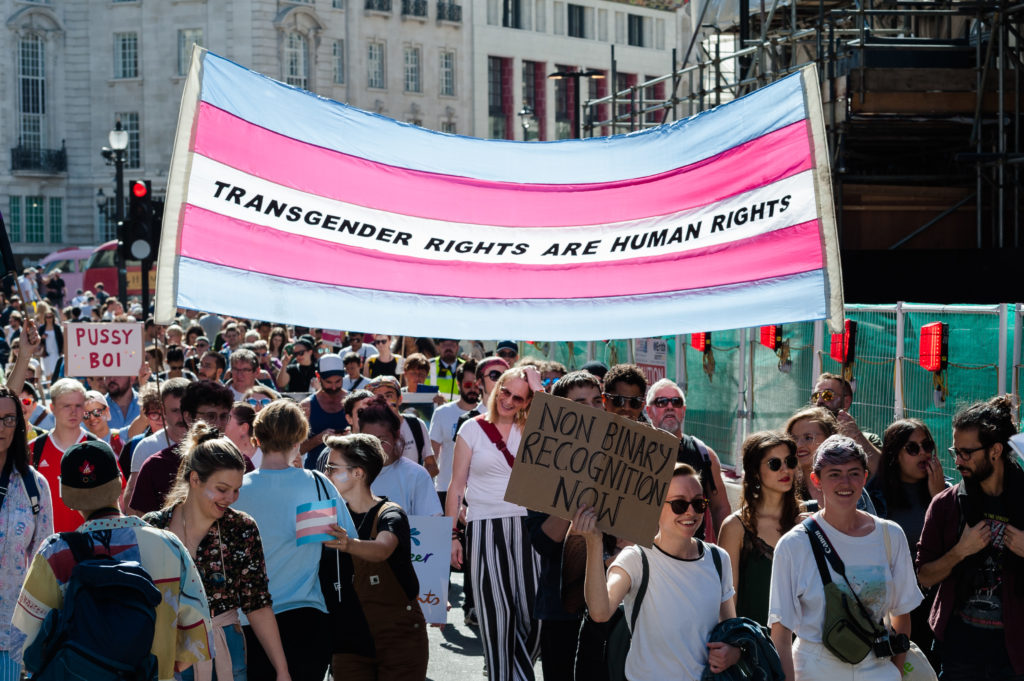Thousands of transgender people and their allies take to the streets for London’s first ever Trans+ Pride march on 14 September, 2019. (WIktor Szymanowicz/NurPhoto via Getty Images)
On September 14, thousands of transgender people and their allies took to the streets of London in a historic first – the UK capital’s first-ever Trans+ Pride march.
Founded by performers Lucia Blake and Finn Love, London Trans Pride was born partly as a response to the hijacking of the front of the Pride in London parade in 2018 by a group of anti-trans campaigners.
“Last year’s transphobic protests and the all too familiar centring of cis-white gay-male narratives at Pride in London certainly informed our decision,” the collective behind the event told PinkNews in April 2019.
“We realised collectively that it’s time for us to own our stories, to celebrate them and to take up the space we deserve outside and in broad daylight.”

More than 1,500 people took part in London’s first Trans+ Pride march, which began at Hyde Park Corner and ended in Soho Square.

Speakers at Soho Square included model Munroe Bergdorf, drag performer Chiyo Gomes and activist Jamie Windust.

Before the march, organisers told the Evening Standard the event was more than just a celebration of trans people’s lives.
They said: ‘We’re wanting to raise urgent conversations about the lack of healthcare for trans+ people in the UK, the fact that we’re deporting trans+ people back to countries where they will be killed immediately, needs for social housing, LGBTQIA+ education, better media representation.”

“We are not finished here, there is still a long way to go for our entire community to feel safe and equal.”
Organiser Lucia Blayke told the Metro the day had been “absolutely incredible and overwhelming”.
She added: “The sun’s out and the sky’s blue, if you look at everyone’s faces it’s just big smiles.”

“For trans people it’s a lot different being out in public. Usually we’re scared, we’re having things shouted at us, we’re humiliated and just really embarrassed.
“Social interactions aren’t usually that relaxing so today is all about being together in public and keeping each other safe and uplifted. It’s the one day we’re not outcasts.”

Hate crimes against transgender people in the UK rose by 81 percent between 2016/17 and 2017/18.
Increases of hate-crime reports are frequently rationalised as being due to improved reporting practices, however, the surge in anti-trans crimes is well above the increase for reports based on every single other protected characteristic
